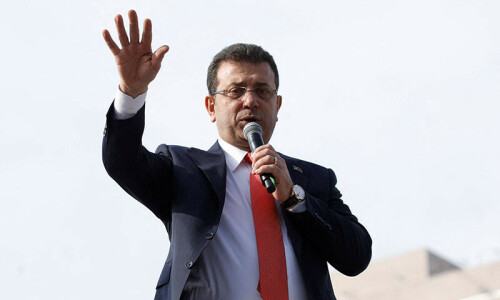Minister for Parliamentary Affairs Azam Khan Swati on Friday apprised the Senate that the Pakistan Telecommunication Authority (PTA) has neither signed any contract for monitoring of Internet Traffic with any vendor nor spent public money on the project.
The minister while replying to a question in the Senate said that in compliance to statutory and policy obligations, the PTA directed the telecom industry to deploy a suitable technical solution capable of monitoring, analysing and curbing grey traffic.
Read more: Army seeks fibre optic cables along CPEC
"The said monitoring system would be called Web Monitoring System (WMS). The contract was signed between relevant telecom operators and the vendor without involvement of public money, he said.
All Long Distance and International (LDI) licensees, CMOs (Cellular Mobile Operators) and Submarine Cable Landing Station licensees were sharing the cost of the system under their regulatory obligations, he said.
The minister said that the PTA, for addressing security concerns, obtained undertaking from the vendor, the Inbox Business Technologies, and manufacturer company Sandvine Inc., USA, for any possible involvement of hostile element.
The vendor was also obligated to get the system certified as per ISO 27001 international standards, he added.
Swati said that in addition, a security agency has been involved to conduct security audit of the system to find out any loop holes and vulnerabilities in the system. He said to further ensure the security, a strict clause about system and material breach was included in the contract.
In case, any such breach was identified and validated, the contract would be terminated, he added.
To another question, the minister said that PTA along with Frequency Allocation Board (FAB) checked the Power Level of Base Transreceiver Station (BTS) (towers) in accordance with regulations.
"So far, five surveys had been conducted in 36 cities wherein power level of 2,429 BTS (towers) had been checked."
The BTS (towers) of all Cellular Mobile Operators (CMOs) and Wireless Local Loop Operators (WLLOs) were transmitting power within the prescribed limits defined in Regulations and hence were not harmful for human health, he said.

















































